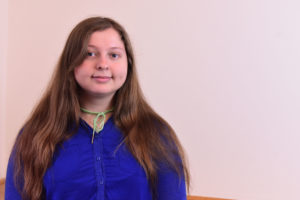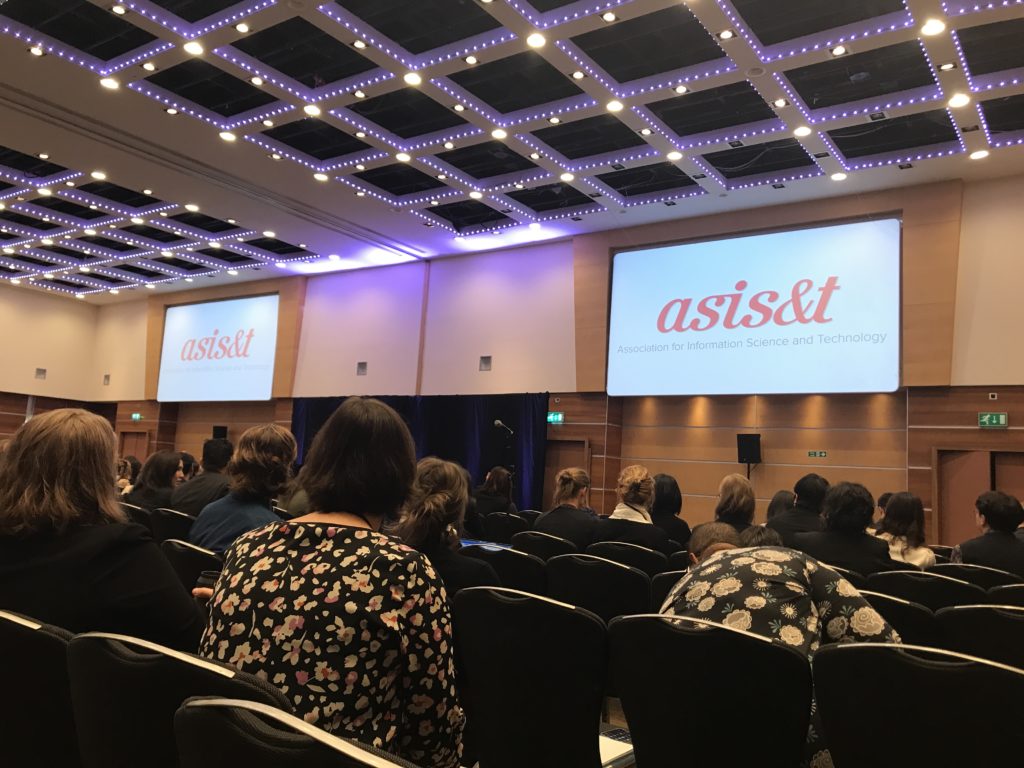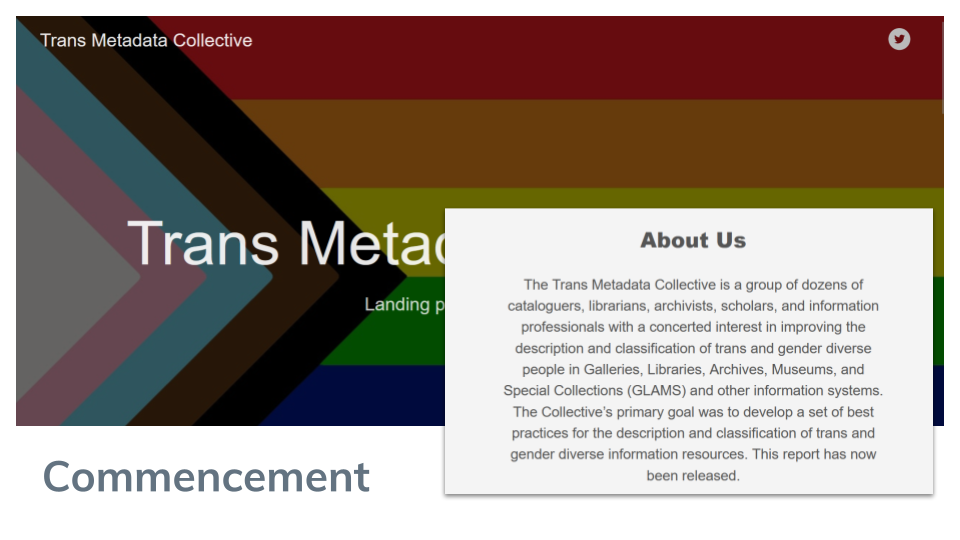 In October, with support from a GLAM Cross-Pollinator Registration Award, Devon Murphy attended the 86th Annual Meeting of the Association for Information Science and Technology (ASIS&T) in London, England. The views and opinions expressed in this blog post are solely those of the author and do not necessarily reflect the official policy or position of the Digital Library Federation or CLIR.
In October, with support from a GLAM Cross-Pollinator Registration Award, Devon Murphy attended the 86th Annual Meeting of the Association for Information Science and Technology (ASIS&T) in London, England. The views and opinions expressed in this blog post are solely those of the author and do not necessarily reflect the official policy or position of the Digital Library Federation or CLIR.
Devon Murphy (they/them) is a metadata and digital collections professional, currently working as Metadata Analyst at the University of Texas at Austin Libraries. Their research areas include information ethics, metadata, Indigenous and non-Indigenous knowledge organization, and linked data. They received dual masters degrees in Art History and Information Science at the University of North Carolina at Chapel Hill (2019), examining information systems in Indigenous-led and non-Indigenous museums. Current research projects include developing metadata best practices for LGBTQ+ materials with the Queer Metadata Collective and creating a shared Spanish subject thesaurus in collaboration with the University of Florida Libraries. Murphy also serves as a member of the Visual Resources Association’s (VRA) Equitable Action Committee.
With ASIS&T 2023 being my first international conference, I had a mild bit of apprehension about the environment of the coming event and its attendees. Although I consider myself both a scholar and a librarian, I was concerned if my presentation would be too practical, or conversely, too outside the conference’s field. Happily, all of my worries were alleviated after the opening keynote, presented by Alison Phipps and Tawona Sitholé. Their choice to utilize a traditional presentation and a poetry performance symbolized to me the varying ways information can be represented and understood, that everything from a list of Library of Congress subject headings to a basket communicates to us, contains metadata for us to interpret and share. This point was further explored by the speakers, who used a calabash (a type of gourd) as both a symbolic and literal site of information. The presenters passed a gourd across the audience, encouraging them to take note of its physical characteristics while explaining that such gourds carry material and cultural knowledge for some African communities. Phipps described that the calabash can be used akin to a knowledge organization system, where varying stories or ideas are related to each other by using the gourd’s structure as a diagram. This theme arose again in a later conference session presented by Chern Li Lew (Victoria University of Wellington), who described the concept of koru (a type of fern in Te Reo Māori) as a model to organize information in line with Māori ways of knowing. In my own work, I focus on ways to integrate different knowledge organization systems in our digital collections, whether through post-custodial means or through use of community-made resources. It was heartening to see such support for these non-Euro-American approaches to information work, as well as evident acceptance of all manner of presenters and their methods.

In the same session as Chern Li Liew, my co-presenter and collaborator Bri Watson (University of British Columbia) and I gave our presentation, “Our Metadata, Our Selves” on the work of the Trans Metadata Collective and its resulting document, the Metadata Best Practices for Trans and Gender Diverse Resources. This document advocates for inserting trans and gender diverse ways of knowing into cultural heritage information systems. For example, we examined how authority record practices can harm trans and gender diverse people by recording inaccurate information or violating privacy. Cataloging choices can have an impact beyond a simple bibliographic record.

I was really excited to share this project with an international audience, providing a great opportunity to see if what we had created was truly useful for others. We received feedback on ways to improve our work and to share it more widely, including considering adding recommendations for Dewey Decimal classification. Fitting with the conference’s theme of “Making a Difference: Putting Policy into Action,” my experience at ASIS&T has inspired me to go further with critical metadata work, both with the Best Practices and within my day-to-day.
